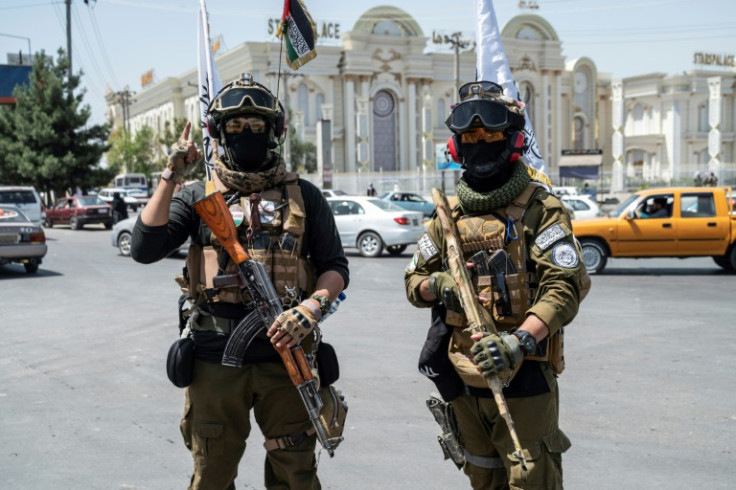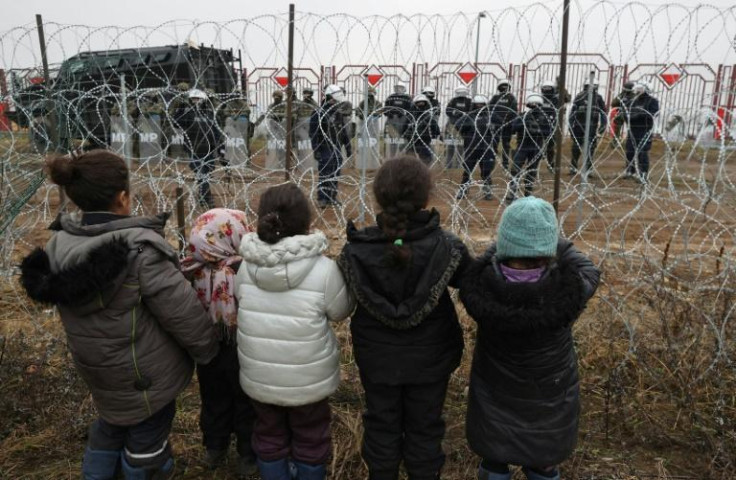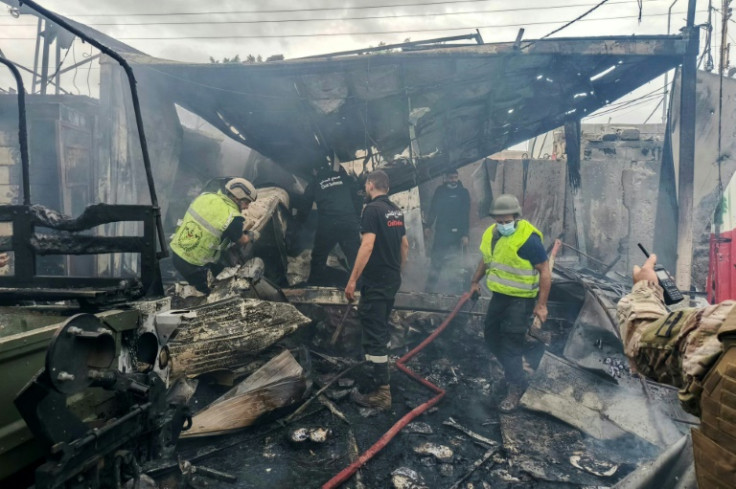UK Couple Detained In Iran Ignored Travel Warnings: Full List Of No-Go Countries For Brits Revealed
Before the arrest of Craig and Lindsay Foreman in Iran, since 2010, at least 66 foreign nationals have been arrested in Iran under similar accusations

In January 2025, British couple Craig and Lindsay Foreman were detained in Iran on charges of espionage after ignoring government travel advisories.
The couple, who were touring the world on motorbikes, had entered Iran despite the UK Foreign, Commonwealth and Development Office (FCDO) advising against all travel to the country. According to Iranian authorities, the Foremans were gathering intelligence and were pretending to be tourists.
Craig, a carpenter, and Lindsay, a life coach, entered Iran from Armenia on 30 December, planning a brief stay before continuing their journey to Australia. They visited multiple Iranian cities, including Tabriz, Tehran, and Isfahan, before disappearing while travelling to their next destination in Kerman. Later, Iranian state-run media reported that the couple was arrested, citing security concerns and espionage allegations.
The couple's case highlighted some of the most dangerous destinations that Westerners should bee wary about - particularly those holding British passports.
As of February 2025, Iran is one of several countries on the list where the FCDO advises against all travel due to ongoing political tensions, security risks, and the possibility of arrest. The advice is not limited to Iran; multiple countries have 'No Go' for the Brits.
Here's a complete list of the most dangerous countries for British travellers, according to the FCDO, and why you should think twice before visiting them.
1. Iran – High Risk of Detention
Before the arrest of Craig and Lindsay Foreman in Iran, since 2010, at least 66 foreign nationals have been arrested in Iran under similar accusations.
In 2016, Nazanin Zaghari-Ratcliffe was detained in Iran while visiting the country with her daughter Gabriella. According to Iran's Revolutionary Guards, Zaghari-Ratcliffe was leading a 'foreign-linked hostile network' in the country.
In her defence, Zaghari-Ratcliffe said she was visiting her parents in Tehran on holiday. She used to live with her husband and daughter in London. She was finally freed in March 2022 and was apparently 'forced' by the Iranian authorities to sign a false confession before she flew to the UK. According to the FCDO website, the organisation advises against all travel to Iran.
FCDO Advice: Do not travel to Iran. 'British nationals are at significant risk of arbitrary detention, especially those with links to Western countries,' the website says.
2. Afghanistan – Terrorism and Armed Conflict
Afghanistan is a well-known no-go zone due to ongoing armed conflict, terrorist attacks, and instability. In April 2023, it was reported that four British men were held captive by the Taliban for over allegedly breaking the country's laws earlier this year. After negotiation talks, all four nationals were released in October 2023.

According to the UK government, travelling to Afghanistan can put puts individuals at grave risk of kidnapping, violence, and even death. The FCDO warns that the threat of terrorism and violence is high, with many areas under the control of insurgent groups.
3. Syria – Active Conflict and Risk of Kidnapping
Syria remains one of the world's most dangerous destinations. The terrorist situation in the country has created an environment of fear and helplessness in the nation, along with evolving humanitarian crises.
According to the FCDO advisory, British nationals face a significant risk of kidnapping, injury, or death in the conflict zones. The website also mentions the potential prosecution you may face after returning from Syria if found involved in certain activities. 'If you travel to Syria to fight, and your activities amount to offences against UK terrorism legislation, you could be prosecuted when you return to the UK,' it says.
4. Russia – Political Tensions and Arbitrary Arrests
Russia's political climate, particularly following its conflict with Ukraine, has led the UK government to issue strong warnings to British nationals.
In 2022, the FCDO updated their travel advisory following the Russian invasion of Ukraine. The Foreign Office warned British nationals against all travel to Russia.

Since then, the FCDO has maintained their advisory, which now reads, 'There is a high threat of terrorist attack globally affecting UK interests and British nationals, including from groups and individuals who view the UK and British nationals as targets.'
5. Yemen – Ongoing Civil War and Humanitarian Crisis
Because of the ongoing Civil War situation, political instability and humanitarian crisis, Yemen faces widespread criticism, including a travel ban from many nations all around the world. Countries like the US, South Korea, and Australia have advised their citizens to avoid any travel to war-torn Yemen.
The FCDO has also instructed British nationals not to travel to Yemen. 'FCDO advises against all travel to Yemen due to the unpredictable security conditions. If you're in Yemen, you should leave immediately,' the website says.
6. South Sudan – Conflict and Political Instability
According to Mercy Drops, South Sudan is going through the third-largest refugee crisis after Syria and Afghanistan. The nation is plagued by corruption, tribal violence and criminal activities.
During a peacemaking mission in South Sudan, a British national was kidnapped and beaten in 2014. 'I was dragged out of my vehicle, beaten and abducted; I was subjected to tactical questioning for some hours before I managed to escape to my vehicle. I managed to shake off the guard and jump into my vehicle and drive through the barrier,' the officer told a news website.
The FCDO says that armed conflict and widespread insecurity make South Sudan a high-risk destination.

7. Belarus – Authoritarian Government and Political Repression
Since the 2020 elections, Belarus has been under a repressive regime. Several countries, including all EU member states, the UK, and Ukraine, have banned Belarusian airlines from overflying their airspace.
'You face a significant risk of arrest if you have at any time engaged in any activity now considered illegal by the Belarusian regime,' the FCDO warning for British Nationals says.
8. Haiti – Political Unrest and Crime
Haiti has seen escalating political violence and instability in recent years.
Widespread gang violence and the breakdown of law and order have made many parts of the country unsafe for travellers. According to a report, embassy staff relocated to the neighbouring Dominican Republic in November 2019. Hence, there are no British consular officials in the country.
The FCDO warns all the British Nationals to avoid any travel to Haiti. 'There is a high threat of criminal kidnaps in Haiti. Incidents of criminal kidnap can occur in any part of the country at any time,' the website says.
9. Libya – Civil War and Terrorism
The presence of terrorist groups, including ISIS, makes Libya a dangerous place for foreign nationals.
Daniel Pinto, a British traveller who likes to visit 'off-limits and dangerous places' around the world, visited Libya in 2024 and spent 21 days around the country. While sharing his experience with a media publication, he said he was detained for seven hours at a checkpoint. 'Libya is very new to tourists. We got to a checkpoint and were detained for seven hours. We were handcuffed and had a gun to our face,' he said.
'The country is under the threat of armed conflict and terrorism, with high risks of kidnap and violence,' the FCDO website says.
10. Lebanon – Terrorism and Armed Conflict
In September 2024, UK Prime Minister Sir Keir Starmer urged British nationals to leave Lebanon immediately due to the crisis between Israel and Hezbollah. According to the BBC, there were between 4,000 and 6,000 UK nationals in Lebanon as of September 2024.
However, in November 2024, Israel and Lebanese Hizballah reached a ceasefire agreement, yet the FCDO maintains its warning against all travel to Lebanon. 'A ceasefire in the conflict between Israel and Lebanese Hizballah came into force on 27 November. However, the security environment remains unpredictable. Military activity, including airstrikes, cannot be ruled out. Tensions remain high, and the situation could deteriorate with little warning,' the website says.

The case of Craig and Lindsay Foreman reminds us that travel advisories are essential warnings that people should follow to avoid dangerous consequences while travelling.
Meanwhile, the family members of the UK couple seek a safe return to the country. 'This unexpected turn of events has caused significant concern for our entire family, and we are deeply focused on ensuring their safety and well-being during this trying time,' the family said in a statement on Saturday.
© Copyright IBTimes 2025. All rights reserved.




















